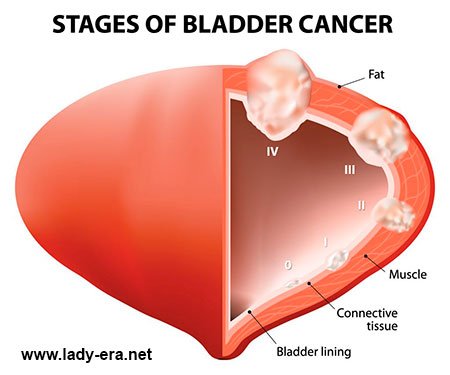Bladder Cancer in Women
Bladder cancer is classified as one of the most devastating and commonly appearing cancer types, striking over 60,000 of adults in the US yearly. Despite the condition appears more frequently in men, it is also peculiar to women mainly in older age.
The condition usually begins in cells, which line the hallow that is the muscular organ storing urine. Most typically the condition develops within the bladder, but it can strike other parts of the urinary tract. Over 70% of patients report primary bladder cancer symptoms at an early stage, which is easy to diagnose and treat. Despite rapid detection and treatment, bladder cancer can recur again, so doctors recommend their patients a range of follow-up rests for several years after the treatment to prevent the risk of complications.

Bladder Cancer Symptoms
The symptoms of the condition are vivid during the early stage, as they are difficult to ignore. Most commonly, women with bladder cancer experience painful urination, severe pelvic pain and blood in the urine. The blood can be cola colored or bright red. However, in some instances, you will not find blood in urine, while several medical tests can detect the problem. Additionally, patients with bladder cancer can experience:
- Frequent need to urinate;
- Urge to urinate;
- Severe back pain.
These are the most typical and specific symptoms of the condition in women. They can differ greatly depending on a woman and her individual health features. Make an appointment with the doctor in case you have noticed blood in urine or other symptoms of cancer development.
Up-to-Date Methods of Bladder Cancer Treatment
If timely diagnosed, bladder cancer can be treated with one of the most effective, modern medications. Your doctor will prescribe the treatment to suit your condition. The therapy will also depend on the cancer stage, but during the early one, you are most likely to undergo a non-invasive papillary carcinoma, flat non-invasive carcinoma, transurethral resection, immunotherapy, chemotherapy or other procedures.
Prevention is always easier than treatment, so you should take care of your health condition to warn the occurrence of the disorder. Quit smoking, choose various fruits and vegetables and stay cautious about chemicals to decrease the risk of bladder cancer development.




